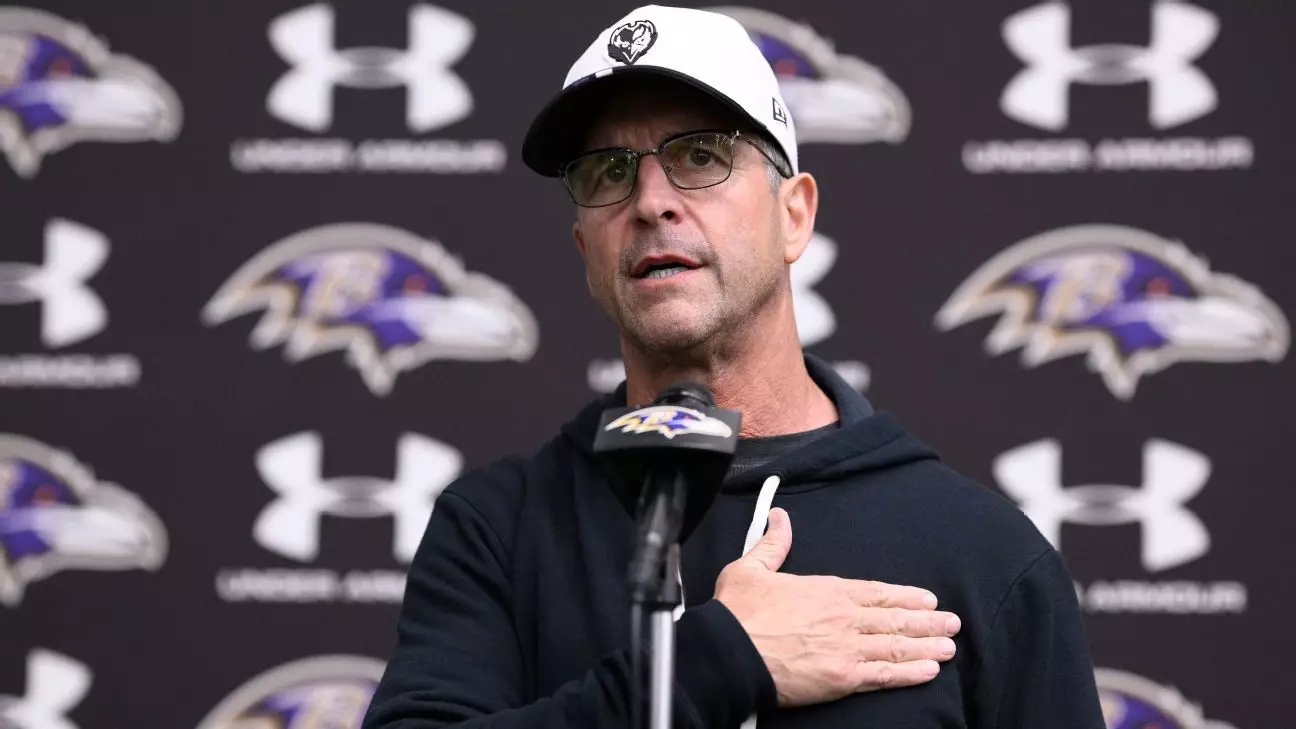In a surprising turn of events that stunned the NFL community, the Baltimore Ravens announced the release of Justin Tucker, the league’s most dependable kicker, on May 5. The decision supposedly stemmed not just from his athletic performance but more critically from emerging allegations of sexual misconduct involving multiple massage therapists. Ravens’ head coach John Harbaugh characterized the choice as multilayered—a football decision influenced by several stakeholders, including team owner Steve Bisciotti and general manager Eric DeCosta. What transpired illustrates the intertwining complexities of sports, ethics, and business decisions that define today’s NFL landscape.
The Ravens had previously indicated that they would wait for the NFL’s investigation to conclude before making any decisions regarding Tucker’s future. Yet, only nine days after drafting Tyler Loop—the first kicker selected by the franchise in its 30-year history—the team’s leadership pivoted dramatically. It raises questions: Why was such a quick decision made, and what impact do off-field issues have on the on-field performance of a franchise?
Beyond Performance Metrics
While Harbaugh focused on the need to prepare for the upcoming season, citing Tucker’s underwhelming statistics from the previous year—his conversion rate of 73.3% ranked him 31st in the NFL—the situation goes deeper than mere numbers. The Ravens’ historical reliance on Tucker has been characterized by an unassailable faith in his abilities; drafting another kicker suggests a strategic pivot, however risky, towards building a future that does not hinge upon a single veteran.
Tucker is not only an accomplished player—boasting seven Pro Bowl selections and a legacy as arguably the best kicker in NFL history—but he was also the emotional anchor for the Ravens during high-pressure situations. The removal of such a seasoned player indicates a significant cultural shift within the organization, one that prioritizes immediacy and the need to swiftly address controversies over steadfast loyalty.
The Fallout of Allegations
Reports cite that Tucker faces accusations from 16 different massage therapists stemming from incidents in various establishments across the Baltimore area. While Tucker has categorically denied any wrongdoing, referring to the allegations as “equivocally false,” the sheer volume of complaints is troubling. This multiplicity of allegations not only complicates the narrative but also places immense pressure on the Ravens to act decisively.
The Ravens’ decision to release Tucker raises ethical questions: Should a franchise be compelled to act against an athlete based on allegations alone, without awaiting the outcome of an investigation? The ethical line between protecting a brand and supporting an individual becomes blurred, particularly when a strong community backlash can impact a franchise’s viability. In this light, while the Ravens’ actions may appear protective of their reputation, they also underscore the fickle nature of professional sports.
An Uncertain Future
Transitioning to a rookie kicker such as Tyler Loop—or undrafted rookie John Hoyland—presents significant risks for a championship-caliber team. Harbaugh’s comments on risk reflect a reality that extends far beyond the field; life, by its very nature, involves uncertainties. The Ravens now find themselves navigating a dual challenge: managing the trust of the fanbase while also cultivating a high-performing team despite less-than-ideal circumstances.
In making an abrupt change, the Ravens have chosen a path laden with potential pitfalls. While a rookie kicker might ignite an element of excitement, the reliance on unproven talent can also lead to heightened scrutiny from fans and analysts alike. When expectations soar for a team that aims for Super Bowl aspirations, the stakes for a young kicker become astronomical.
The Road Ahead for Tucker
As for Tucker, the future remains uncertain. The fallout from his allegations will undoubtedly affect his standing as a player. While he may land on another team, the shadows of these accusations will linger. Observers will watch closely to see how this illustrious career navigates the current storm—a storm that could define or derail future possibilities.
In a culture that increasingly demands accountability and responsiveness, both the player and the organization must wrestle with evolving definitions of trust and consequence. As Tucker and the Ravens pursue their divergent paths, this saga serves as a striking reminder that the interplay of ethics, performance, and public perception in professional sports is more crucial than ever. The real question remains: in an industry defined by competition, how do teams and athletes balance the scales of reputation with the essence of their craft?

